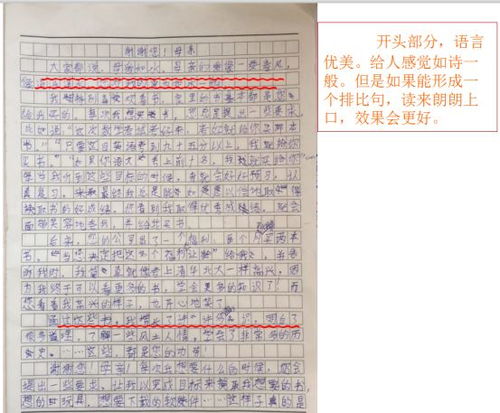proclaim中文(proclaim)
- 漫画
- 2023-03-04 21:50:01
- -
举例英语的前缀,后缀,(中文意思)并给出单词
一.常见的前缀
1.表示否定意义的前缀
1)纯否定前缀
a-, an-, asymmetry(不对称)anhydrous(无水的)
dis- dishonest, dislike
in-, ig-, il, im, ir, incapable, inability, ignoble, impossible, immoral, illegal, irregular
ne-, n-, none, neither, never
non-, noesense
neg-, neglect
un- unable, unemployment
2)表示错误的意义
male-, mal-, malfunction, maladjustment(失调)
mis-, mistake, mislead
pseudo-, pseudonym(假名), pseudoscience
3)表示反动作的意思
de-, defend, demodulation(解调)
dis-, disarm, disconnect
un-, unload, uncover
4)表示相反,相互对立意思
anti-, ant- antiknock( 防震), antforeign,(排外的)
contra-, contre-, contro-, contradiction, countercurrent (逆流)
counter-, counterreaction, counterbalance
ob-, oc-, of-, op-, object, oppose, occupy
with-, withdraw, withstand
2. 表示空间位置,方向关系的前缀
1)a- 表示“在……之上”,“向……”
aboard, aside,
2)by- 表示“附近,邻近,边侧”
bypath, bypass(弯路)
3)circum-, circu-, 表示“周围,环绕,回转”
circumstance, circuit
4)de-, 表示“在下,向下”
descend, degrade
5)en-, 表示“在内,进入”
encage, enbed(上床)
6)ex-, ec-, es-, 表示“外部,外”
exit, eclipse, expand, export
7)extra-, 表示“额外”
extraction (提取)
8)fore- 表示“在前面”
forehead, foreground
9)in-, il-, im-, ir-, 表示“向内,在内,背于”
inland, invade, inside, import
10)inter-, intel-, 表示“在……间,相互”
international, interaction, internet
11)intro-, 表示“向内,在内,内侧”
introduce, introduce
12)medi-, med-, mid-, 表示“中,中间”
Mediterranean, midposition
13)out-, 表示“在上面,在外部,在外”
outline, outside, outward
14)over-, 表示“在上面,在外部,向上”
overlook, overhead, overboard
15)post-, 表示"向后,在后边,次”
postscript(附言),
16)pre-, 表示"在前”在前面”
prefix, preface, preposition
17)pro-, 表示“在前,向前”
progress, proceed,
18)sub-, suc-, suf-, sug-, sum-, sup-, sur-, sus-, 表示“在下面,下”
subway, submarine, suffix, suppress, supplement
19)super-, sur-, 表示“在…..之上”
superficial, surface, superstructure
20)trans-, 表示“移上,转上,在那一边”
translate, transform, transoceanic
21)under-, 表示“在…..下面,下的”
underline, underground, underwater
22)up-, 表示“向上,向上面,在上”
upward, uphold, uphill(上坡)
3. 表示时间,序列关系的前缀
1)ante-, anti-, 表示“先前,早于,预先”
antecedent, anticipate,
2)ex-, 表示“先,故,旧”
expresident, exhusband
3)fore-, 表示“在前面,先前,前面”
foreward, dorecast, foretell(预言)
4)mid-, medi-, 表示“中,中间”
midnight, midsummer
5)post-"表示“在后,后”
postwar,
6)pre-, pri-, 表示“在前,事先,预先”
preheat, prewar, prehistory
7)pro-, 表示“在前,先,前”
prologue(序幕),prophet(预言家)
8)re-, 表示“再一次,重新”
retell, rewrite
4. 表示比较程度差别关系的前缀
1)by-, 表示“副,次要的”
byproduct, bywork(副业)
2)extra-,表示“超越,额外”
extraordinary,
3)hyper- 表示“超过,极度”
hypersonic(超声波), hypertesion(高血压)
4)out-,表示“超过,过分”
outdo(超过), outbid(出价过高的人)
5)over-,表示“超过,过度,太”
overeat, overdress, oversleep
6) sub-, suc-, sur-, 表示“低,次,副,亚”
subeditor, subordinate, subtropical(亚热带)
7)super-, sur- 表示“超过”
supernature, superpower, surplus, surpass
8)under-,表示“低劣,低下”
undersize, undergrown, underproduction(生产不足)
9)vice- 表示“副,次”
vicepresident, vicechairman
5. 表示共同,相等意思的前缀
1)com-, cop-, con-, cor-, co- 表示“共同,一起”。
connect, combine, collect, combat, coexist, co-operate
2)syn-, syl-,sym-,表示“同,共,和,类”
symmetry, sympathy, synthesis(合成)
6. 表示整个完全意思的前缀
1)al- 表示“完整,完全”alone, almost,
2) over-表示“完全,全”overall, overflow(充满)
3) pan-表示“全,总,万”panentheism(泛神论),panorama
7. 表示分离,离开意思的前缀
1)a- ab-, abs-,表示“分离,离开” away, apart, abstract, abstain
2)de- 表示“离去,处去”depart, decolour,
3)dis-, di-, dif-, 表示“分离,离开” divorce, disarm(缴械)
4)ex-, e-, 表示“离开,分离”expel, exclude, expatriate(驱出国外)
5)for- 表示“离开,脱离”forget, forgive
6)表示“离开”release, resolve
7)表示“分离,隔离”separate, seduce, select
8. 表示通过,遍及意思的前缀
1)dia-,表示“通过,横过”diameter, diagram,
2)per-, pel-, 表示“通,总,遍”perfect, perform, pervade(浸透)
3)trans-, 表示“横过,贯通”transparent, transmit, transport
9. 表示加强意思的前缀
a-, arouse, ashamed
ad-, adjoin, adhere( 粘着)
10. 表示变换词类作用的前缀
be-, befriend,
en-, enslave, enable, enrich
ad-, ac-, af-, ag-, an-, ap-, ar-, as-, at-, adapt, accord, affix, aggression, arrive, assist, attend, attract, arrange, assign(委派)
11. 表示数量关系的前缀
1)表示“单一”,“一”
mon-, mon-, monotone(单调),monopoly, monarch
uni-, un-, uniform, unicellular(单细胞)
2)表示“二,两,双”
ambi-, ambiguous, amphibian(两栖类)
bi-, bin- bicycle, di-, diode(二级管),
twi-, twilight
3)表示“十”deca, deco-, dec- deci-, decade, decimals
4)表示"百,百分之一"
hecto-, hect-, hectometer,
centi-, centimeter
5)表示"千,千分子一” kilo-, kilometer
6)表示"万,万分子一”
myria-, myri-, myriametre
mega-, meg-, megabyte
micro-, microvolt (微伏特)
7)表示"许多,复,多数”
multi-, mult-, multipmetre (万用表)
poly-, polysyllable,
8)表示“半,一半”
hemi-, hemisphere
demi-, demiofficial
semi-, semiconductor, semitransparent
pene-, pen-, peninsula
12. 表示特殊意义的前缀
1)arch-, 表示“首位,第一的,主要的”architect, archbishop
2)auto-, 表示“自己,独立,自动”automobile, autobiography
3)bene-, 表示“善,福”benefit
4)eu-, 表示“优,美好”eugenics(优生学),euphemism
5)male-, mal- 表示“恶,不良”maltreatment, malodor,
6)macro-, 表示“大,宏大”macroscopic(宏观)
7)magni-, 表示“大”magnificent
8)micro-, 表示“微”microscope
13. 表示术语的前缀
1)aud-, 表示“听,声”audience,
2)bio-, 表示“生命,生物”biography(传记)
3)ge-, 表示“地球,大地”geography
4)phon-, 表示“声,音调”phonograph
5)tele-, 表示“远离”television, telephone
二.常见的后缀
1. 名词后缀
(1) 具有某种职业或动作的人
1)-an, -ain, 表示"……地方的人,精通……的人”American, historian,
2)-al, 表示"具有……职务的人" principal,
3)-ant,-ent, 表示"……者” merchant, agent, servant, student,
4)-ar, 表示"……的人” scholar, liar, peddler
5)-ard, -art, 表示"做……的人”coward, laggard, braggart(夸张者)
6)-arian, 表示"……派别的人, ……主义的人”humanitarian, vegetarian
7)-ary, 表示"从事……的人" secretary, missionary
8)-ant, 表示"具有……职责的人" candidate, graduate
9)-ator, 表示"做……的人" educator, speculator(投机者)
10)-crat, 表示"某种政体,主义的支持者" democrat, bureaucrat
11)-ee, 表示"动作承受者" employee, examinee
12)-eer, 表示"从事于……人" engineer, volunteer
13)-er, 表示"从事某种职业的人, 某地区,地方的人" banker, observer, Londoner, villager
14)-ese, 表示" ……国人,…..地方的人”Japanese, Cantonese
15)-ess, 表示"阴性人称名词, actress, hostess, manageress
16)-eur, 表示"……家” amateur, littérateur
17)-ian, 表示"……地方人,信仰…….教的人,从事……职业的人”Christian, physician(内科医生),musician
18)-ician, 表示"精通者, ……家,”electrician, magician, technician
19)-icist, 表示"……家, …….者, …….能手”physicist, phoneticist, technicist
20)-ic, 表示"……者,……师" mechanic, critic
21)-ie, 表示"爱,指小" dearie, auntie, lassie(小姑娘)
22)-ier, 表示"从事……职业” cavalier, clothier, brazier(黄铜匠)
23)-ine, ian, 表示"阴性人称" heroine, ballerina
24)-ist, 表示"从事……研究者,信仰……主义者" pianist, communist, dentist, artist, chemist
25)-ive, 表示"动作者,行为者” native, captive
26)-logist, 表示"……学家,研究者" biologist, geologist(地质学家)
27)-or, 表示"……者" author, doctor, operator,
28)-ster, 表示"做…….事情的人”youngster, gamester(赌徒),songster
29)-yer, 表示" 从事……职业者” lawyer
(2). 构成,具有抽象名词的含义
1)-acy, 表示"性质,状态,境遇" accuracy, diplomacy
2)-age, 表示"状态,行为,身份及其结果,总称" courage, storage, marriage
3)-al, a) 表示"事物的动作,过程”refusal, arrival, survival, denial, approval
b) 表示具体的事物manual, signal, editorial, journal
4)-ance, -ence表示"性质,状况,行为,过程,总量,程度” endurance, importance, diligence, difference, obedience
5)-ancy, -ency, 表示"性质,状态,行为,过程" frequency, urgency, efficiency,
6)-bility, 表示"动作,性质,状态" possibility, feasibility,
7)-craft, 表示"工艺,技巧” woodcraft, handicraft, statecraft(治国策)
8)-cracy, 表示"统治,支配" bureaucracy, democracy
9)-cy, 表示"性质,状态,职位,级别" bankruptcy(破产),supremacy
10)-dom, 表示"等级,领域,状态" freedom, kingdom, wisdom
11)-ery, -ry, 表示"行为,状态,习性" bravery, bribery, rivalry
12)-ety, 表示"性质,状态” variety, dubiety(怀疑)
13)-faction, -facture, 表示"作成,……化,作用" satisfaction, manufacture
14)-hood, 表示"资格,身份, 年纪,状态" childhood, manhood, falsehood
15)-ice, 表示"行为,性质,状态" notice, justice, service
16)-ine, 表示"带有抽象概念" medicine, discipline, famine
17)-ing, 表示"动作的过程,结果" building, writing, learning
18)-ion, -sion, -tion, -ation, -ition, 表示"行为的过程,结果,状况" action, solution, conclusion, destruction, expression, correction
19)-ise, 表示"性质,状态” exercise, merchandise(商业)
20)-ism, 表示"制度,主义,学说,信仰,行为" socialism, criticism, colloquialism, heroism
21)-ity, 表示"性质,状态,程度” purity, reality, ability, calamity
22)-ment, 表示"行为,状态,过程,手段及其结果 treatment, movement, judgment, punishment, argument
23)-mony, 表示"动作的结果,状态" ceremony, testimony
24)-ness, 表示"性质,状态,程度" goodness, kindness, tiredness, friendliness
25)-or, -our, 表示"动作,性质,状态" favor, error,
26)-osity, 表示"动作,状态” curiosity
27)-ship, 表示"情况,性质,技巧,技能及身份,职业” hardship, membership, friendship
28)-th, 表示"动作,性质,过程,状态" depth, wealth, truth, length, growth
29)-tude, 表示"性质,状态,程度" latitude, altitude(海拔)
30)-ure, 表示"行为,结果" exposure, pressure, failure, procedure(手续),
31)-y, 表示"行为的结果,状态,性质” glory, history, victory, inquiry
(3) 带有场所,地方的含义
1)-age, 表示"住所,地点" village, cottage
2)-ary, 表示"住所,场地" library, granary (谷仓)
3)-ery, ry, 表示"工作场所,饲养所,地点" laundry, nursery, surgery(手术室)
4)-ory, 表示"工作场所,住处" factory, dormitory, laboratory, observatory
(4) 带有学术,科技含义
1)-grapy, 表示"……学,写法” biography, calligraphy, geography
2)-ic, ics, 表示"……学……法" logic, mechanics, optics, electronics
3)-ology, 表示"……学……论”biology, zoology, technology(工艺学)
4)-nomy, 表示"……学……术" astronomy, economy, bionomy(生态学)
5)-ery, 表示"学科,技术" chemistry, cookery, machinery
6)-y, 表示"……学,术,法” photography, philosophy
(5) 表示人和事物的总和,集合含义
1)-age, baggage, tonnage
2)-dom, newspaperdom(新闻界)
3)-hood, neighbourhood, womanhood
4)-ery, cavalry, ministry(内阁)
5)-ure, legislature, judicature
(6) 表示物品和物质名称的含义
1)-ant, ent, solvent, constant
2)-al, signal, pictorial(画报)
3)ar, collar, pillar(石柱)
4)- er, boiler, computer, washer, cooker
5)-ery, drapery(绸缎)
6)-ing, clothing, matting,
7)-ment, instrument, equipment, attachment
(7) 表示“细小”的含义
1)-cle, particle,
2)-cule, molecule(分子)
3)-el, parcel
4)-en, chicken, maiden
5)-et, pocket, ticket
6)-etta, -ette, etto, cigarette, essayette(短文)
7)-kin, napkin
8)-ling, duckling,
9)-let, booklet
10)-y, baby, doggy
2. 形容词后缀
(1)带有“属性,倾向,相关”的含义
1)-able, -ible, movable, comfortable, applicable, visible, responsible
2)-al, natural, additional, educational
3)-an, ane, urban, suburban, republican
4)-ant, -ent, distant, important, excellent
5)-ar, similar, popular, regular
6)-ary, military, voluntary
7)-ice, -atie, ical, politic, systematic, historic, physical,
8)-ine, masculine, feminine, marine
9)-ing, moving, touching, daring
10)-ish, foolish, bookish, selfish
11)-ive, active, impressive, decisive
12)-ory, satisfactory, compulsory
13)-il, -ile, -eel, fragile, genteel(文雅的)
(2) 表示“相象,类似”的含义
1)-ish, boyish, childish
2)-esque, picturesque
3)-like, manlike, childlike
4)-ly, manly, fatherly, scholarly, motherly
5)-some, troublesome, handsome
6)-y, milky, pasty
(3) 表示“充分的”含义
1)-ful, beautiful, wonderful, helpful, truthful
2)-ous, dangerous, generous, courageous, various
3)-ent, violent,
(4) 表示由某种物质形成,制成或生产的含义
1)-en, wooden, golden, woolen
2)-ous, gaseous
3)-fic, scientific
(5) 表示方向的含义
1)-ern, eastern, western
2)-ward, downward, forward
(6) 表示“倍数”的含义
1)-ble, double, treble
2)ple, triple
3)-fold, twofold, tenfold
(7) 表示“数量关系”的含义
1)-teen, thirteen
2)-ty, fifty
3)-th, fourth, fiftieth
(8) 表示国籍,语种,宗教的含义
1)-an, Roman, European
2)-ese, Chinese,
3)-ish, English, Spanish
(9) 表示“比较程度”的含义
1)-er, greater
2)-ish, reddish, yellowish
3)-est, highest
4)-most, foremost, topmost
(10)其他的含义
-less, 表示否定,countless, stainless, wireless
3. 动词后缀
1)-ize, ise, 表示"做成,变成,……化“modernize, mechanize, democratize, organize
2)-en, 表示"使成为,引起,使有” quicken, weaken, soften, harden
3)-fy, 表示"使……化, 使成”beautify, purify, intensify, signify, simplify
4)-ish, 表示"使,令” finish, abolish, diminish, establish
5)-ate, 表示“成为……,处理,作用” separate, operate, indicate
4. 副词后缀
1)-ly, possibly, swiftly, simply
2)-ward, -wards, downward, inwards, upward
3)-ways, always, sideways
4)-wise, otherwise, clockwise
三.常见的词根
常见的词根
1) aer, ar, 含义是“空气,大气” aeroplane, aerial,
2) ag, act, ig, 含义是“做,动作” active, agent, reaction,
3) alt, 含义是“高”, altitude,
4) alter, altern, altr, 含义是“其它,变更” alternate,
5) bio, bi, bion, 含义是“生物,生命” biology, bionics(仿生学)
6) brev, bri, brief, 含义是“短” brief, abbreviation, abridge(节略)
7) cap, capt, cept, cip, 含义是“取,获” capture, except, concept, capacity
8) ced, ceed, cess, 含义是“行,让步” proceed, succeed, excess(过度)
9) centr, centr, 含义是“中心” concentrate, eccentric(偏心的)
10) clain, clam, 含义是“呼喊” claim, proclaim, exclaim
11) clos, clud, 含义是“闭合” conclude, enclose, include
12) col, cult, 含义是“耕耘” colony, cultivate, agriculture
13) cor, cord, 含义是“心” cordial, record, accord
14) curr, cur, cour, 含义是“跑,动作” current, occur, concurrence(同时发生)
15) dic, dict, 含义是“说,示” dictate, edit, indicate, predict
16) doc, doct, 含义是“教” doctor, document
17) duc, duct含义是“引导,传导” introduce, produce, conduct, deduct( 推论)
18) fact, fac, fect, dic, dit, 含义是“做,创造” factory, effect, profit, faculty, perfect
19) fend, fens, 含义是“打,击” defence, offence
20) fer, 含义是“搬运,移转” ferry, transfer, defer(迟延)
21) fin, finit, 含义是“终,极” final, finish, confine
22) firm, 含义是“坚固” firm, confirm, affirm(断定)
23) fix, 含义是“固定” prefix, affix(附加)
24) flect, flex, 含义是“弯曲” flexible, reflex
25) flor, flour, flower, 含义是“花” flower, flourish
26) form, 含义是“形” uniform, formula, transform, reform, deform
27) forc, fort, 含义是“力,强度” force, enforce, effort
28) gen, genit, 含义是“生产,发生” generate, generation
29) gram, graph, 含义是“书写,记录” telegram, diagram, photograph
30) grad, gress, gred, gree, 含义是“步,阶段” gradually, degree, progress
31) hab, habit, hibit, 含义是“保持,住” inhabit, exhibit, prohibit
32) her, hes, 含义是“粘附” adhere, cohesion
33) ject, jet, 含义是“抛射” project, inject
34) jour, 含义是“日,一天” journal(日记), journey, adjourn(延期)
35) jug, junct, 含义是“结合,连合” conjunction, junction(连合)
36) labour, labor, 含义是“劳动,工作” labourer, elaborate, collaborate
37) lect, leg, lig, 含义是“挑选,采集” collect, select, lecture
38) lif, liv, 含义是“生活,生存” life, alive, live
39) loc, 含义是“场所,位置” location, dislocate(脱位)
40) long, leng, ling, 含义是“长的” length, prolong, linger
41) loqu, locut, 含义是“说话” colloquial, eloquent,
42) mand, mend, 含义是“命令” command, demand, recommend
43) man, manu, 含义是“手,手法” manage, manual
44) memor, menber, 含义是“记忆” memory, remember, memorial
45) mind, ment, 含义是“心” mind, remind, mental
46) merc, merch, 含义是“贸易” commerce, merchant
47) meas, mens, meter, metr, 含义是“测量,度量” measure, meter, diameter
48) min, 含义是“小” diminish, minority
49) miss, mit, 含义是“派遣,送” mission, dismiss, transmit, missile
50) mob, mot, mov, 含义是“动” movement, motion, mobile, remove
51) nect, nex, 含义是“捆扎” connect, disconnect, annex(合并)
52) not, 含义是“记号,注意” note, denote, annotation(注释)
53) onom, onym, 含义是“名字” synonym, antonym, anonymous
54) pair, par, 含义是“a)相同,对等b)准备” compare, prepare
55) pel, puls, 含义是“追逐” expel, impel(推进)
56) pend, pens, pond, 含义是“悬挂” depend, independent, expense(支付)
57) phon, 含义是“声音” symphony, telephone, microphone
58) plac, 含义是“位置,场所” place, replace
59) peopl, popul, publ, 含义是“人民,民众” public, republic, popular, people
60) port, 含义是“搬运” export, import, deport(输送)
61) press, 含义是“压,压制” pressure, express, oppress, impression
62) prob, proof, prov, 含义是“实验,验证” prove, approve,
63) quer, quest, quir, quis, 含义是“寻找,探问” inquiry, question, inquisition(调查,追究)
64) rang, rank, 含义是“排列” arrange, rank,
65) rect, right, rig, 含义是“正,直” correct, direct, erect
66) riv, 含义是“河流,流远”,river, arrive, derive
67) rupt, 含义是“破坏,毁坏” eruption, bankrupt, corruption
68) sci, 含义是“认识,知识” science, conscious
69) scrib, script, 含义是“书写,记录” describe, script
70) sens, sent, 含义是“感觉,情感” sensation, sentiment
71) sign, 含义是“标记,符号” signal, signature, design
72) sembl, simil, 含义是“相似,类似” similar, resemble, assimilate(同化)
73) soci, 含义是“结合,社交” social, association
74) spec, spect, spitc, spis, 含义是“看,视” inspect, spectator, conspicuous, respect
75) struct, 含义是“建筑,构造” structure, construct, instruct, destruction
76) tect, teg, 含义是“遮蔽,掩盖” detect, protect
77) temp, tens, 含义是“时间,时机” tense, contemporary, temporal
78) tend, tes, tent, 含义是“倾向, 伸张” tendency, intension, extend, intend
79) test, 含义是“证明,证实” testify, protest, contest(争论)
80) text, 含义是“编织, 构成” textile, texture, context
81) tract, trail, 含义是“拖拉,吸引” attract, tractor, abstract, contract(收缩)
82) tribut, 含义是“给予” contribution, distribute
83) us, ut, 含义是“用,使用” usable, utilize, abuse
84) vac, van, 含义是“空,虚” vacancy, vanity, evacuate(清空)
85) vad, vas, wad, 含义是“走,去” invade, wade, evade(逃避)
86) vers, vert, 含义是“旋转,反转” convert, inversion(倒转), reverse, divert(使转向)
87) vid, vis, vey, view, 含义是“观看,看见” television, visible, evident, interview, survey
88) viv, vit, 含义是“生,活” vivid, vital, survival,
89) war, ward, 含义是“注意,保护” aware, wary(谨慎), ward(守护)
90) way, 含义是“路” way, away, subway, always !
prodaim中文意思
proclaim 英[prəˈkleɪm] 美[proˈklem, prə-]
vt. 表明; 宣告,公布; 赞扬,称颂;
[例句]The Boers rebelled against British rule, proclaiming their independence on 30 December 1880
布尔人反抗英国统治,并于1880年12月30日宣布独立。
[其他] 第三人称单数:proclaims 现在分词:proclaiming 过去式:proclaimed过去分词:proclaimed
巧记单词!英文难!!
利用构词法巧记单词-词根 我就是这么背的,很有用~~
1) aer, ar, 含义是“空气,大气” aeroplane, aerial,
2) ag, act, ig, 含义是“做,动作” active, agent, reaction,
3) alt, 含义是“高”, altitude,
4) alter, altern, altr, 含义是“其它,变更” alternate,
5) bio, bi, bion, 含义是“生物,生命” biology, bionics(仿生学)
6) brev, bri, brief, 含义是“短” brief, abbreviation, abridge(节略)
7) cap, capt, cept, cip, 含义是“取,获” capture, except, concept, capacity
8) ced, ceed, cess, 含义是“行,让步” proceed, succeed, excess(过度)
9) centr, centr, 含义是“中心” concentrate, eccentric(偏心的)
10) clain, clam, 含义是“呼喊” claim, proclaim, exclaim
11) clos, clud, 含义是“闭合” conclude, enclose, include
12) col, cult, 含义是“耕耘” colony, cultivate, agriculture
13) cor, cord, 含义是“心” cordial, record, accord
14) curr, cur, cour, 含义是“跑,动作” current, occur, concurrence(同时发生)
15) dic, dict, 含义是“说,示” dictate, edit, indicate, predict
16) doc, doct, 含义是“教” doctor, document
17) duc, duct含义是“引导,传导” introduce, produce, conduct, deduct( 推论)
18) fact, fac, fect, dic, dit, 含义是“做,创造” factory, effect, profit, faculty, perfect
19) fend, fens, 含义是“打,击” defence, offence
20) fer, 含义是“搬运,移转” ferry, transfer, defer(迟延)
21) fin, finit, 含义是“终,极” final, finish, confine
22) firm, 含义是“坚固” firm, confirm, affirm(断定)
23) fix, 含义是“固定” prefix, affix(附加)
24) flect, flex, 含义是“弯曲” flexible, reflex
25) flor, flour, flower, 含义是“花” flower, flourish
26) form, 含义是“形” uniform, formula, transform, reform, deform
27) forc, fort, 含义是“力,强度” force, enforce, effort
28) gen, genit, 含义是“生产,发生” generate, generation
29) gram, graph, 含义是“书写,记录” telegram, diagram, photograph
30) grad, gress, gred, gree, 含义是“步,阶段” gradually, degree, progress
31) hab, habit, hibit, 含义是“保持,住” inhabit, exhibit, prohibit
32) her, hes, 含义是“粘附” adhere, cohesion
33) ject, jet, 含义是“抛射” project, inject
34) jour, 含义是“日,一天” journal(日记), journey, adjourn(延期)
35) jug, junct, 含义是“结合,连合” conjunction, junction(连合)
36) labour, labor, 含义是“劳动,工作” labourer, elaborate, collaborate
37) lect, leg, lig, 含义是“挑选,采集” collect, select, lecture
38) lif, liv, 含义是“生活,生存” life, alive, live
39) loc, 含义是“场所,位置” location, dislocate(脱位)
40) long, leng, ling, 含义是“长的” length, prolong, linger
41) loqu, locut, 含义是“说话” colloquial, eloquent,
42) mand, mend, 含义是“命令” command, demand, recommend
43) man, manu, 含义是“手,手法” manage, manual
44) memor, menber, 含义是“记忆” memory, remember, memorial
45) mind, ment, 含义是“心” mind, remind, mental
46) merc, merch, 含义是“贸易” commerce, merchant
47) meas, mens, meter, metr, 含义是“测量,度量” measure, meter, diameter
48) min, 含义是“小” diminish, minority
49) miss, mit, 含义是“派遣,送” mission, dismiss, transmit, missile
50) mob, mot, mov, 含义是“动” movement, motion, mobile, remove
51) nect, nex, 含义是“捆扎” connect, disconnect, annex(合并)
52) not, 含义是“记号,注意” note, denote, annotation(注释)
53) onom, onym, 含义是“名字” synonym, antonym, anonymous
54) pair, par, 含义是“a)相同,对等b)准备” compare, prepare
55) pel, puls, 含义是“追逐” expel, impel(推进)
56) pend, pens, pond, 含义是“悬挂” depend, independent, expense(支付)
57) phon, 含义是“声音” symphony, telephone, microphone
58) plac, 含义是“位置,场所” place, replace
59) peopl, popul, publ, 含义是“人民,民众” public, republic, popular, people
60) port, 含义是“搬运” export, import, deport(输送)
61) press, 含义是“压,压制” pressure, express, oppress, impression
62) prob, proof, prov, 含义是“实验,验证” prove, approve,
63) quer, quest, quir, quis, 含义是“寻找,探问” inquiry, question, inquisition(调查,追究)
64) rang, rank, 含义是“排列” arrange, rank,
65) rect, right, rig, 含义是“正,直” correct, direct, erect
66) riv, 含义是“河流,流远”,river, arrive, derive
67) rupt, 含义是“破坏,毁坏” eruption, bankrupt, corruption
68) sci, 含义是“认识,知识” science, conscious
69) scrib, script, 含义是“书写,记录” describe, script
70) sens, sent, 含义是“感觉,情感” sensation, sentiment
71) sign, 含义是“标记,符号” signal, signature, design
72) sembl, simil, 含义是“相似,类似” similar, resemble, assimilate(同化)
73) soci, 含义是“结合,社交” social, association
74) spec, spect, spitc, spis, 含义是“看,视” inspect, spectator, conspicuous, respect
75) struct, 含义是“建筑,构造” structure, construct, instruct, destruction
76) tect, teg, 含义是“遮蔽,掩盖” detect, protect
77) temp, tens, 含义是“时间,时机” tense, contemporary, temporal
78) tend, tes, tent, 含义是“倾向, 伸张” tendency, intension, extend, intend
79) test, 含义是“证明,证实” testify, protest, contest(争论)
80) text, 含义是“编织, 构成” textile, texture, context
81) tract, trail, 含义是“拖拉,吸引” attract, tractor, abstract, contract(收缩)
82) tribut, 含义是“给予” contribution, distribute
83) us, ut, 含义是“用,使用” usable, utilize, abuse
84) vac, van, 含义是“空,虚” vacancy, vanity, evacuate(清空)
85) vad, vas, wad, 含义是“走,去” invade, wade, evade(逃避)
86) vers, vert, 含义是“旋转,反转” convert, inversion(倒转), reverse, divert(使转向)
87) vid, vis, vey, view, 含义是“观看,看见” television, visible, evident, interview, survey
88) viv, vit, 含义是“生,活” vivid, vital, survival,
89) war, ward, 含义是“注意,保护” aware, wary(谨慎), ward(守护)
90) way, 含义是“路” way, away, subway, always
1、语音记忆
语音记忆就是根据单词的发音规律来记忆单词,具体可分为以下几种:
1.1 、外来语。中文中有许多词本身来自英语,因此这类词的发音近似英语,我们只要依据发音便可记忆。如:sofa(沙发),pudding(布丁),caffee(咖啡),curry(咖喱)等。
1.2 、字母组合。英语中一定的字母组合形成一定的发音,如:sh发/∫/;tion发/∫әn/;sure发/9*/或/.*/等等,我们只要掌握了它们之间联系的规律,正确发音,记忆单词就方便多了。
1.3 、同音异义。英语中有些单词发音相同。但词形和意思不同,平时稍加留意,有助于记忆单词。如:/rait/--write(写),right(对);/beis/--base(基础),bass(低音部)等。
1.4 、同形异音。有的单词形同音不同或重音不同, 意思也不同,便于联想记忆。如: live--/liv/(生存),/laiv/(活的,实况转播的);react--/ri'#kt/(起反应),/'ri:'#kt/(重做,重演)等。
1.5 、开音节和闭音节。在英语中有不少重读闭音节单词只要在词尾加-e就可转变成另一个开音节单词。如:bat(球棒),bate(减少);plan(计划),plane(飞机);bit(一点),bite(叮咬);cut(切割),cute(聪明的,漂亮的)等。
1.6 、谐音。利用单词发音的谐音记忆单词,生动、有趣,又便于记忆。如:umbrella(因没)伞,俺们不来了;spiderman--蜘蛛人,(是)失败的人。
2、词形圮忆
词形记忆就是根据单词的词形变化规律来记忆单词。主要有以下几种:
2.1、词缀。在我们称为词根的单词前面或后面加上前缀或后缀。通常前缀转变单词的词义,而后缀转变单词的词性和词义。如
tell v.(讲)--retell v.(再讲);known adj.(知晓)--unknown adj.(未知的)
war n.(战争)--prewar n.(战前);way n.(道路)--subway n.(地铁)
care n.(注意,小心)--careful adj.(小心的)--carefully adv.(小心地)
treat v.(对待)--treatment n.(待遇);health n.(健康)--healthy adj.(健康的)
2.2 、合成。英语中有不少单词可以合并而成为另一个单词,合成又可分为完全合成和部分合成。
2.2.1 、完全合成。即由两个或两个以上的整体单词构成。如:matchgirl(卖火柴的女孩),sleep-walk(梦游),face-to-face(面对面),commander-in-chief(总司令)
2.2.2 、部分合成。即由两个单词中一个单词的前半部分与另一单词的后半部分组合而成。如:motor + hotel-- motel(汽车旅馆);television + broadcast--telecast(电视播送);smoke + fog--smog(烟雾); breakfast + lunch--brunch(早中饭)。
有时,也有用两个单词中位置相同部分组合成一个单词的,如:International Police--Interpol(国际警察);American Indian--Amerind(美国印第安人)。
2.3、增减字母。即在一个单词的前后增加或减少某个字母。如:Long(长的)--along(沿着);ward(病房)--award(授与);war(战争)--warm(温暖的); pit(坑、穴)--pity(怜悯)。
2.4、替换字母。即将一个单词中的某个字母替换成另一个字母。如:rice(米、饭)--rise(升起);work(工作)--word(单词);dip(蘸)--kip(千磅)--lip(嘴唇)--tip(尖)--zip(拉上/开……的拉链)
2.5 、形象化。即把一个单词结构视为一个物体来记忆。如把单词eye看作是一双眼睛中间加上一只鼻子,这样就不易遗忘。
3、词义记忆
词义记忆就是按照单词相同或不同的含义进行记忆,具体可分为以下几种:
3.l 、同、近义词。即按照同义和近义词的分类来记忆单词,如:美丽,漂亮beautiful--pretty--fair--handsome;工资,报酬pay--salary--wage;医生doctor--physician--surgeon;希望,期望wish--hope--expect--want。
不过在记忆这些单词时,有必要了解使用上的区别,以免日后使用不当。
3.2、反义词。即把一个词与其反义词结合起来记忆。如:optimistic(乐观的)--pessimistic(悲观的);maximum(最大量)--minimum(最小量);strong(强壮的)--weak(虚弱的)。
3.3、 同类词。即把词义含有相同性质的事物或动作的单词编在—起记忆。如:衣物:clothes,coat,dress,shirt,blouse,skirt,sweater,jacket,uniform,gown,trousers等。文具:stationery,pen,pencil,ball-pen,pencil-box,ruler,eraser,in,inkpot,sharpener,compass等。烹调;cook,boil,fry,bake,braise,smoke,roast,simmer,stew等。
每人记忆单词的方法有所不同,只要适合自己就是好方法。但一般说来,记忆英语单同时应该注意以下几点:
1、切忌贪多、求快。饭要一口一口地吃,词要一个—个地记,要学会以旧带新、循序渐进、巩固旧单词、扩大新词汇。
2、词句结合,词境结合。离开了语句和情境,词就没有生命,因此为记单词而记单词的方法是不可取的。最好的方法是将单词与日常生活语境结合起来,在使用中记忆,这样的单词记忆才具有活力。
3、运用科学方法,增强记忆。根据遗忘先快后慢的规律,要想增强单词的记忆,就得积极应用、大胆实践,不断提高单词的复现率。现代社会给我们提供了十分良好的使用英语的环境,我们应该充分利用一切机会多听、多说、多看英语,使单词经常出现在我们的脑海里,这样自然就不易被遗忘。
联想记忆:(1)音与形的联想,即根据读音规则记忆单词;(2)形与义的联想,如:eye 把两个e看成两个眼。banana 把a看成一个个的香蕉。bird 把b和d看成两个翅膀。(3)象声词,联想实际的声音,如:gong 锣 coo 咕咕声。
逻辑记忆:通过词的本身的内部逻辑关系,词与词之间的外部逻辑关系记忆单词。(1)把几个字母看做一个来记如:"ight" light, right, fight, night, might, sight, tight (2)外旧内新,如:bridge "桥"看成 b+ridge ridge "山脊"sharp 看成 s+harp harp "竖琴。(3)外新内旧,如:cleave "劈开"看成 c+leave, tact "机智:看成 t+act
卡片记忆:自制作单词卡片随时随身进行记单词,卡片写上单词的词形、词性、词义、音标、搭配、例句等。此方法适合在坐车或其他时间进行,既充分利用了时间,又达到巩固单词的目的,一举两得。
构词记忆:利用构词法,通过分析词根、前缀、后缀、派生和合成等记忆单词。
分类记忆:把单词进行分门类 如:动物,植物;运动,医疗、食物等等,进行分类记忆。此项工作最好是自己在英语学习过程中不断有意识地进行归纳、分类,更好地掌握英语。
比较记忆:(1)英汉比较 如:mama, cigar, beer, bar,fee等。(2)单复数的比较 如:good-goods, spirit-spirits wood-woods (3)同音词的比较如:right-write, eye-I 4)词的阴阳性的比较 如:actor-actress host-hostess 。
理解记忆:通过正确理解单词的本义、引申义和比喻义等如:second 是"秒",它来源于古代的六分法,分,秒,它是二次划分, 因此second 也是"第二",进一步引申,还可理解为"辅助"用这种方法特别适合那些一词多义的词。
联系记忆:记忆单词最好不要孤立地记,尽可能地和有关的东西联系来记。(1)联系所学的文章大概意义,联系上下文,(2)联系短语和搭配 。
歌曲记忆:通过唱英语歌曲记忆单词,"听霸""听力超人"等软件中有许多英文歌曲,并配有歌词和译文;一些好的英语歌曲为大家所唱,像《Yesterday once more》《Big big world》等,不仅提高了学生的英语学习兴趣,而且帮助其记忆大量单词,效果相当好。
每个人都应该根据自己的学习兴趣和学习困难选择最适合自己的单词记忆方法,教师也可以根据学生的特点,做些必要的指导,引导他们真正进入英语的学习中来,收到更好的学习效果。
最后送给所有一句话:“If you think you can ,you can .”
英语作业:3. d_ _ _ _ _ _ v. to say sth. officially or publicly翻译成中文?
根据后面的英语解释to say something officially or publicly(正式的或者公开的说),再根据给的首字母d,可以确定答案是declare(vt. 宣布,声明;断言,宣称
vi. 声明,宣布;申报;声明)
celebrate翻译成中文怎么说啊?
celebrate
vt.
1. 庆祝
We held a party to celebrate our success.
我们举行宴会庆祝我们的成功。
2. 举行(宗教仪式);主持(圣餐等)
3. 颂扬,赞美
The event was celebrated by poets and historians.
这一事件为诗人和历史学家所赞颂。
vi.
1. 庆祝,过节
Today is his birthday, so we're going to celebrate.
今天是他的生日,所以我们要庆祝一下。
2. 举行宗教仪式
3. 【口】欢乐
[img]本文由作者笔名:毁忆″ 于 2023-03-04 21:50:01发表在本站,原创文章,禁止转载,文章内容仅供娱乐参考,不能盲信。
本文链接:https://www.e-8.com.cn/mh-109020.html
 毁忆″
毁忆″















